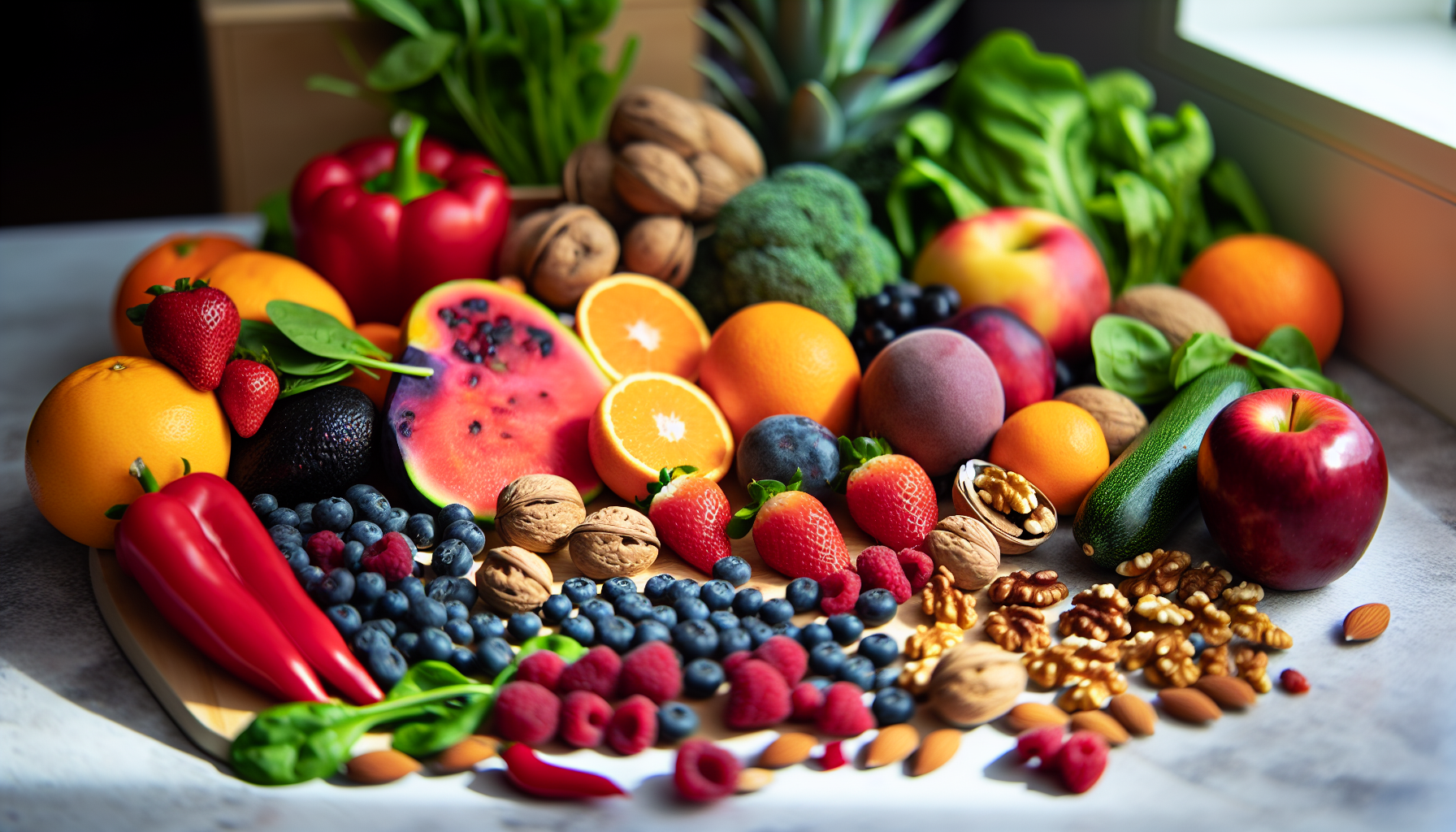In the quest for optimal health, polyphenol supplements have emerged as a popular contender, touted for their powerful antioxidant and anti-inflammatory properties. With an array of health benefits linked to everything from improving heart health to reducing the risk of chronic diseases, it's no wonder many are turning to these supplements as a shortcut to well-being. However, the question remains: are polyphenol supplements effective, at least as much as the buzz suggests? This article dives deep into the heart of the matter, exploring the science behind polyphenol supplements, their bioavailability, and how they stack up against the polyphenols found in natural food sources like green tea, dark chocolate, and many plant foods.
The enthusiasm for polyphenol supplements is understandable, given their association with a lower risk of cardiovascular diseases, improved blood flow, and potential to combat inflammatory bowel disease, among many other health benefits. Yet, the effectiveness of these supplements compared to the naturally occurring polyphenols in plant-based foods is a subject of ongoing scientific debate. Key factors such as the food matrix, processing methods, and the role of digestive enzymes and gut microbiota play a crucial role in the bioavailability and impact of polyphenols on health. Moreover, while the allure of a quick fix is tempting, it's essential to consider the potential downsides of overconsumption and the value of a balanced diet rich in polyphenol-rich foods. This article aims to peel back the layers of hype, providing a balanced view of polyphenol supplementation, its benefits, limitations, and how it fits into the broader context of clinical nutrition and a healthy lifestyle.
Key Takeaways
- Polyphenol supplements, known for antioxidant and anti-inflammatory properties, are claimed to offer significant health benefits. However, their effectiveness compared to natural sources is under scientific debate and still lacks conclusive evidence.
- The bioavailability of polyphenols, critical to their health impact, is influenced by the food matrix, processing, digestive enzymes, and gut microbiota, with natural food sources often providing better absorption than isolated supplements.
- Overconsumption of polyphenol supplements can lead to adverse health effects, emphasizing the need for a balanced dietary intake of plant-based foods, lifestyle changes for natural antioxidant benefits, and a cautious approach to anecdotal success stories.
Evaluating Polyphenol Supplements
Through the looking glass of health and nutrition, polyphenol supplements emerge as a beacon of hope for many seeking the fountain of wellness in a convenient capsule. These supplements claim to offer a panacea of health benefits akin to the natural bounty provided by polyphenol-rich foods like green tea polyphenols and dark chocolate. But is the promise of polyphenol supplements grounded in reality, or is it merely a fable concocted by the dietary supplement industry? One thing is sure: polyphenols benefit health, and incorporating them into your diet can be a wise choice.
Understanding Polyphenol Supplementation
To grasp the essence of polyphenol supplementation, one must first understand the nature of these compounds. Polyphenols, known for their antioxidant and anti-inflammatory properties, are found in many plant foods, each contributing a unique blend to the array of health benefits. But when it comes to polyphenol supplements, we are faced with a different beast altogether—these products, derived and processed distinctively from their whole-food counterparts, promise a concentrated dose of the same benefits.
The diversity of polyphenols is staggering, with phenolic acids and stilbenes being just two of the many ensembles within this group. While the former can be savored in acidic fruits, the latter is often enjoyed in a glass of red wine, where they naturally occur. Yet, the journey these compounds take from plant to pill raises questions about their effectiveness and whether they can genuinely mirror the healthful harmony of dietary polyphenols.
Potential Benefits of Supplementing with Polyphenols

The list of accolades for polyphenols is extensive, from safeguarding the heart to sharpening the mind and even keeping diabetes at bay. The antioxidant properties of polyphenols, which neutralize free radicals, are central to their reputed health benefits, potentially keeping chronic inflammation in check.
However, the metabolites of polyphenols, those transformed versions that emerge post-digestion, are thought to be the actual conductors of these beneficial effects.
The Debate Over Effectiveness
Yet, not all are convinced of the polyphenol supplement’s prowess. The scientific community remains embroiled in a debate, with in vivo (living tissue) studies clashing with in vitro (test tubes) findings—what happens in a petri dish doesn’t always translate to the human body. While the potential therapeutic uses of compounds like resveratrol are acknowledged, especially in clinical settings, the conclusive evidence needed to crown polyphenol supplements as health champions is still pending.
The Science Behind Polyphenol Absorption

As we delve deeper into the world of polyphenols, we encounter the complex realm of biochemistry that determines their fate within our bodies. Polyphenol absorption is a critical checkpoint for their effectiveness, with every step from ingestion to assimilation shaping their potential to confer neuroprotective benefits and combat disorders linked to oxidative stress and inflammation.
Bioavailability Concerns
The bioavailability of polyphenols, a measure of how much reaches the bloodstream to exert health effects, is influenced by myriad factors, including blood flow. These factors include:
- The food matrix
- Processing
- Digestive enzymes
- The composition of gut microbiota
All of these factors dance together in a complex ballet that ultimately determines how much of these compounds are absorbed and how effective they can be as supplements.
Comparing Food Sources and Supplements
Regarding the bioavailability of polyphenols, nature appears to have the upper hand. The intricate nature of food matrices protects polyphenols and enhances their stability and bioavailability, which isolated supplements may struggle to match.
Risks and Considerations of Polyphenol Supplementation

Yet, for all their potential glory, polyphenol supplements walk a fine line between benefits and increased risk. Excessive intake, easier to achieve with concentrated supplements than with diet alone, can flip the script, turning these antioxidants into pro-oxidants and ushering in many potential health risks.
Side Effects and Interactions
Despite their touted benefits, polyphenols are not free from the risk of side effects. Their potential to disrupt digestive harmony is concerning, as they can inhibit enzymes necessary for proper digestion, leading to a gamut of gastrointestinal woes, including inflammatory bowel disease.
Regulatory Oversight and Quality
In polyphenol supplements, the pursuit of quality is marked by variability and the pressing need for enhanced regulatory oversight. While Europe's food safety authority has made commendable strides toward establishing some measure of control, the broader international landscape is still characterized by a patchwork of differing standards and practices. This disparity underscores the importance of making informed choices when selecting polyphenol supplements. With the health and wellness market flooded with countless options, discerning consumers increasingly seek products from highly reputable and rigorously regulated nutraceutical companies.
Recognizing the significance of navigating this complex marketplace, we've crafted an invaluable resource titled “Unlock Nature's Secret: The Best Polyphenol Supplements Reviewed.” This meticulously curated list highlights five of the premier supplements currently available, offering our readers peace of mind in their quest for quality. Each selected supplement has undergone stringent third-party testing, ensuring it meets the highest purity, potency, and efficacy standards. Our guide not only simplifies the decision-making process but also empowers you to choose supplements that truly align with the promise of delivering the many health benefits polyphenols are known for. This added layer of guidance is essential in a landscape where quality cannot be taken for granted, providing a beacon of reliability for those committed to enhancing their health through the thoughtful integration of polyphenol supplements into their dietary regimen. You can check this review article out here. 👇
Alternatives to Polyphenol Supplements

Considering the benefits and risks of polyphenol supplementation, it’s worth turning to nature’s pantry for alternatives. Plant-based foods, nature’s original polyphenol suppliers, offer a cornucopia of these compounds, and incorporating a variety of these into our diets can significantly boost polyphenol intake.
Boosting Dietary Intake of Polyphenols
One of the simplest ways to elevate polyphenol intake is through the diet. Here are some examples of foods that are rich in polyphenols:
- Seeds
- Nuts
- Fruits
- Vegetables
Including many plant foods in meals is a delicious strategy for enhancing overall health.
Lifestyle Changes for Enhanced Antioxidant Intake
Beyond the plate, lifestyle changes are pivotal in optimizing antioxidant intake. Embracing habits that reduce the consumption of processed foods in favor of whole, plant-based options not only ups the intake of polyphenols but also promotes a host of other health benefits, such as:
- improved digestion
- increased energy levels
- weight management
- reduced risk of chronic diseases
- improved skin health
- better mood and mental clarity
These changes can significantly impact your overall well-being, leading to a lower risk of health issues.
Success Stories and Anecdotal Evidence
The allure of polyphenols is reinforced by stories of transformation and revitalization—personal testimonies that sing the praises of these compounds. While these accounts provide compelling narratives, they lack the rigor of systematic collection and, as such, should be approached with a discerning eye.
Clinical Nutrition Perspective
From the lens of clinical nutrition, polyphenols are regarded as potential powerhouses in the fight against chronic disease thanks to their anti-inflammatory and antioxidant prowess. The evidence, while promising, is yet to merge into a definitive chorus, leaving room for more research to fine-tune the understanding of polyphenols’ role in a healthy diet.
Summary
In the quest to uncover the truth about polyphenol supplements, our journey has taken us through a rich landscape of scientific inquiry, health claims, and the real-world experiences of those who have turned to these compounds in the hope of better health. As we conclude this exploration, it's clear that polyphenol supplements, celebrated for their powerful antioxidant and anti-inflammatory properties, offer a tantalizing glimpse into the potential for improved well-being. Yet, as our investigation reveals, their effectiveness is not as straightforward as many might hope.
Our deep dive into the world of polyphenols has illuminated the significant health benefits these compounds are purported to offer, from lowering the risk of chronic diseases such as heart disease and cancer to boosting the immune system and improving blood flow. The allure of polyphenol supplements lies in their promise to deliver these benefits in concentrated form. However, the narrative that unfolds is one of complexity and caution. Compared to their natural sources, such as green tea, dark chocolate, and many plant foods rich in dietary polyphenols, the effectiveness of these supplements remains a topic of scientific debate. This is partly due to the critical issue of bioavailability – how well these compounds are absorbed and utilized by the body – which is influenced by numerous factors, including the food matrix, processing, and interactions with the gut microbiota.
Moreover, the discussion of polyphenol supplements is incomplete without acknowledging the regulatory landscape that governs their production and sale. Our journey has highlighted the inconsistency in quality and the need for more stringent regulatory oversight to ensure the safety and efficacy of these products. It's a reminder of the importance of selecting supplements from highly reputable and regulated nutraceutical companies, a task we've aimed to simplify with our curated list of the best polyphenol supplements on the market.
In summary, while polyphenol supplements hold promise for augmenting a healthy diet, their role should be considered part of a broader strategy for health and nutrition. A diet rich in polyphenol-rich foods, coupled with lifestyle changes, offers a more holistic approach to harnessing the benefits of these potent compounds. The narrative that has emerged is not one of a miracle cure but a call to thoughtful, informed choices about how we support our health. As we navigate the evolving landscape of nutritional science and supplement use, it remains essential to approach polyphenol supplementation with a critical eye, informed by the latest research and guided by the principle that the best health strategies are those tailored to the individual's unique needs and circumstances.
Frequently Asked Questions
What is the best source of polyphenols?
The best sources of polyphenols are plants, particularly whole plant-based foods such as herbs, spices, nuts, seeds, vegetables, and berries. Consuming these foods and beverages like cocoa, coffee, and red wine can help ensure a polyphenols-rich diet.
Are there any proven health benefits to polyphenols?
Yes, polyphenols are proven to have health benefits, particularly as powerful antioxidants that can help prevent cell damage and decrease the risk of chronic diseases such as cancer and cardiovascular diseases. These benefits make them a valuable addition to your diet.
Are there any downsides to polyphenols?
Yes, there are downsides to polyphenols. They have been associated with potential adverse health effects, such as disrupting the production of thyroid hormones, inhibiting digestive enzymes, blocking iron uptake, and even increasing the risk of certain health issues. These downsides should be taken into consideration when consuming polyphenols or polyphenol supplements.
Are polyphenol supplements worth it?
Yes, polyphenol supplements are worth it, as they are potent antioxidants that can prevent or reverse cell damage linked to an increased risk of chronic diseases. They may also improve heart health and offer protection against certain cancers and other diseases.
What are polyphenols, and where can they be found naturally?
Polyphenols are compounds with antioxidant properties in plant-based foods like fruits, vegetables, tea, coffee, chocolate, and red wine.
Thanks for taking this journey to explore the simple question: "Are Polyphenol supplements effective?" We hope this discussion has helped clarify the benefits and precautions of these fantastic plant-based compounds (flavonoids, phenolic acid, polyphenolic amides, and other polyphenols). Also, if you want to add to your library of knowledge, you should check out the other article mentioned and linked above. It never hurts to add to your knowledge arsenal!
Please return soon to check out our next review of another incredible supplement – we’re always looking out for YOU!
*We are NOT qualified medical advisors. The content here is only based on our personal opinions and should NOT be used as a substitute for a healthcare professional's advice!











Member discussion